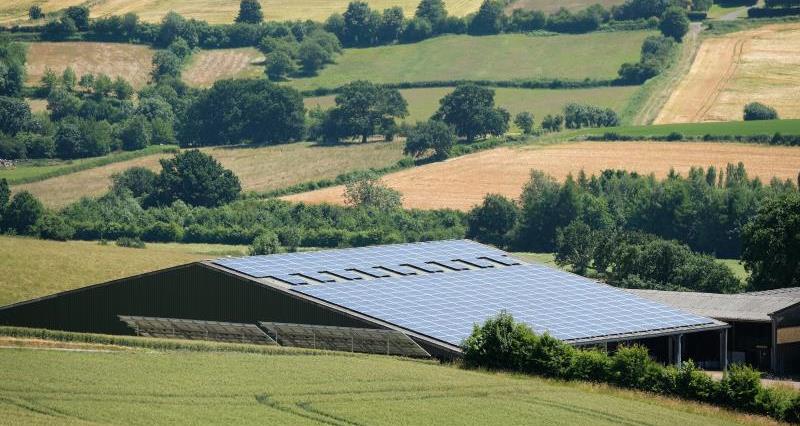The aim:
To reduce carbon emissions by switching from fossil fuels to renewable solar energy.
The actions:
Action |
Cost |
Time |
|
Install solar panels (PV) on domestic and commercial buildings for electricity generation |
£££/ |
|
|
Install solar thermal panels for domestic water heating |
£££/ |
|
|
Install a ground‑mounted solar farm |
£££/ |
|
The results:
For the business:
Lower energy bills and the opportunity to earn money exporting excess energy to the grid. Capital costs for solar installation have decreased rapidly and continue to do so, offering a sound return on investment even in the absence of any renewable energy incentives.
For net zero:
A significant proportion of energy generation in the UK is still reliant on burning fossil fuels, which emit GHGs and exacerbate climate change. By switching to renewables, a clean source of energy, you can reduce your carbon footprint. Domestic solar panels can save around one tonne of CO2 per year1 and a solar water heater can save between 30 and 510kg CO2 a year2.
How to measure success:
Your energy bills will go down. Solar panels can result in annual savings of between £160 and £4303 and solar heating could save up to £80 a year on utility bills 4.
Agricultural buildings
Suitable buildings for solar installation include barns, machinery sheds, grain and vegetable stores, livestock sheds, dairy parlours and, in some cases, farmhouses. The greatest business opportunities come from buildings that use significant electricity on site such as intensive poultry sheds or vegetable packhouses. Opportunities exist on for glasshouse areas where light levels are not critical (e.g. storage areas).
Solar Farms
Consider larger‑scale installations of solar panels on lower grade land or field margins. These can have multi‑purpose land use, continuing agricultural activity (sheep grazing, free‑range poultry), whilst providing wider environmental benefits that may be eligible for financial support.
When undersown with suitable seed mixtures, solar farms can help to support biodiversity and wildlife within more intensively managed farmland, providing habitats for pollinating insects or over‑winter forage for wild birds etc.

